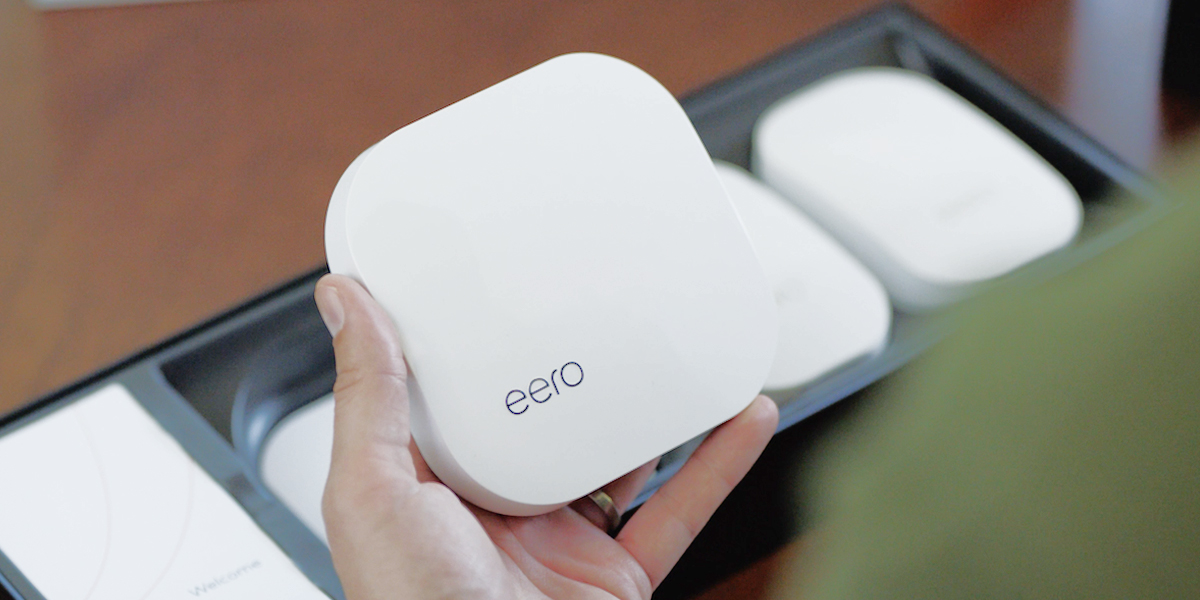- Amazon’s acquisition of Eero was valued at $97 million, a fire-sale deal that was worth significantly less than the company’s most recent reported valuation.
- Documents obtained by Business Insider indicate how much investors may have lost from the deal.
- The paperwork indicates that the estimated amount to be paid at the deal’s close was lower than the estimated liquidation preference per share, a sign investors received less than they poured in.
- Visit Business Insider’s homepage for more stories.
When Amazon agreed to acquire Eero for $97 million – a fire-sale deal that was worth significantly less than the company’s most recent reported valuation – investors were among those who lost out while the founders walked away with millions in payouts.
Documents obtained by Business Insider indicate how much investors in series seed through series D rounds are estimated to have lost according to the deal’s terms. The documents say the estimated per share liquidation preference for each class of shares was lower than the estimated amount per share to be paid at closing – a sign investors received less money than they poured in to the startup. It makes sense considering the company’s sale to Amazon was valued at far less than its most recent estimated valuation, which Pitchbook data indicates was $215 million following a series D funding round in late 2017.
A liquidation preference dictates the amount of money that preferred stock owners are paid in the event that a company is sold or liquidated. It’s a common practice venture capitalists use to ensure they get their money back before other types of stockholders are paid.
In Amazon’s acquisition of Eero, the amount to be paid per share at closing was more than 16% lower than the liquidation preference for series seed through series D rounds, according to the documents.
Because the figures below are estimates, the exact amount of money investors were paid at closing could differ from what was shown in the documents. Mashable first reported the specifics of Amazon's acquisition of Eero on Friday. Eero declined to comment when the news broke on Friday and has not responded to Business Insider's follow-up request. Amazon has not responded to Business Insider's request for comment.
Series Seed
- Estimated per share liquidation preference: $0.48
- Estimated amount to be paid at closing: $0.40
- Difference: Decrease of 16.7%
Series A
- Estimated per share liquidation preference: $1.17
- Estimated amount to be paid at closing: $0.98
- Difference: Decrease of 16.2%
Series B
- Estimated per share liquidation preference: $2.83
- Estimated amount to be paid at closing: $2.37
- Difference: Decrease of 16.3%
Series C
- Estimated per share liquidation preference: $5.03
- Estimated amount to be paid at closing: $4.21
- Difference: Decrease of 16.3%
Series D
- Estimated per share liquidation preference: $7.51
- Estimated amount to be paid at closing: $6.29
- Difference: Decrease of 16.2%
Amazon and Eero announced in February that the two companies had entered into a merger agreement, a move that was positioned as being a beneficial partnership that would accelerate their missions of bringing a quality Wi-Fi experience to the home. But the terms of the deal also left common shareholders with almost nothing, as the documents indicate that the terms valued common stock at $0.03 a share.
Eero's three cofounders - Nick Weaver, Nathan Hardison, and Timothy A. Schallich - received payouts in the form of bonuses and other awards, as did other company executives, the documents suggest. Weaver is poised to receive more than $7 million, according to the documents, while Hardison could end up with more than $5 million and Schallich could receive more than $4 million. The final amount Eero's cofounders and executives receive could differ from what was stated in the documents.
Eero was founded in 2014 by the Stanford alumni Weaver, Hardison, and Schallich. The company quickly established itself as a pioneer in mesh networking - a technology that uses multiple access points to blanket an area with a Wi-Fi signal rather than relying on just one router. Eero's first product was well-received by tech critics upon launching in 2016, and companies like Google and Samsung have since released similar devices.
Amazon's purchase of Eero is the latest in a series of acquisitions that further cement the online retail giant as a dominant player in the smart-home industry. It acquired the smart-doorbell maker Ring for a reported $1 billion in 2018 and the security-camera startup Blink for a reported $90 million in 2017, Reuters reported at the time.
Got a tip? Contact this reporter at [email protected] or via encrypted email at [email protected].

